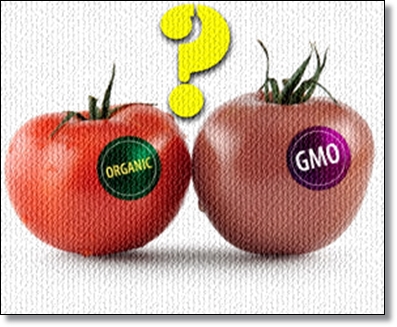GMO: Uganda Must Rethink Biosafety Law

 |
Millions of Ugandans, and especially small holder farmers, instead expected the Hon. Minister to present a bill aimed at detecting, stopping and destroying GMOs. There is plenty of evidence that shows that GMOs will harm economic livelihoods of many small holder farmers, downgrade the health of millions of citizens, increase hazards to environment, compromise indigenous, cultural and traditions of our society and cripple Uganda’s strategic economic interests.
GMO crusaders ignore the core economic questions – such as: Where will Uganda sell its GMO products? Will transformation from an Organic into a GMO economy give Uganda a competitive advantage? Available numbers illuminate a different pathway from what GMO proponents propose. For example, datasets from the International Trade Center (ITC), a United Nations outfit –show that untapped Organics market for agricultural products in Europe is currently $60 billion, Japan $11 billion and US $41 billion. So why would Uganda want to run away from this market, instead of strategizing to harness it, especially so, now that the world wants GMO products banned or labeled?
In niche’ markets that Uganda should be targeting like, New Zealand, no GMO foods are grown in the country. In Germany, there is a ban on the cultivation or sale of GMO maize. In Ireland, all GM crops were banned for cultivation in 2009, and there is a voluntary labeling system for foods containing GM foods to be identified as such. In Austria, Hungary, Greece, Bulgaria and Luxembourg; there are bans on the cultivation and sale of GMOs. In France: Monsanto's MON810 GM corn had been approved but its cultivation was forbidden in 2008.
Madeira, a small autonomous Portugese Island requested a country-wide ban on genetically modified crops last year and was permitted to do so by the European Union. Switzerland banned all GMO crops, animals, and plants on its fields and farms in a public referendum in 2005. In India; the government placed a last-minute ban on GM eggplant just before it was scheduled to begin being planted in 2010. If these niche destinations for Uganda’s agro products like coffee, tea, cotton, flowers and tobacco outlawed GMOs – why should we even think about making Uganda a GMO economy?
In spite of adjuncts of Climate change, Uganda is still feeding itself at a time when its arable land utilization is below 50%. Indeed, over 80% of farmers are defacto conservation and organic farmers. If our conservation practices are accentuated through a reformed budget architecture that puts more money in agriculture – we can feed the region and world without engaging in any form of genetic manipulation.
Indeed, the 500 billion that Hon. Matia Kasaija mentioned as income fetched by banana farmers annually is not from GMO bananas – but rather from organically grown bananas across the country. Now the use of banana ‘bacterial wilt catastrophe’ as an excuse/ploy to spread GMOs is collapsing – because farmers have discovered that sanitary measures have huge potential to contain the wilt as was done in Ethiopia in 1973. The answer to banana bacterial wilt is therefore not GMOs.
In his comment, the Hon. Minister defined modern biotechnology as “recombinant DNA technology, or genetic engineering/ modification (GMO) as the use of biotechnology tools to transfer useful genetic characteristics into plants, animals, or micro-organisms” – This definition means negative implications for some traditions and cultures. For example, it could mean transfer of genes from a pig to millet or rice etcetera. What will this mean for those whose religions consider eating pork sacrilegious?
It may also mean that fish genes can be transferred to rice and beans, among others. I have interacted with many people who don’t eat fish and many cultures that consider eating of fish a taboo (omuziiro). What will the passing of a bill that seeks to spread GMOs as defined by the Hon. Minister mean for them? I think it is important that we do not hide the intentions of this bill under terms like regulation, biosafety and spurious blackmail against those that point out GMO dangers. The objectives of this bill are by and large – to spread GMOs in Uganda.
Instead of promoting this bill in its current shape, I urge the Hon. Minister to use his positive energy and influence to enact policies that will support small holder family farmers who form the basis of our economy and our country. Vital issues for small holder family farmers are: improved access to value addition, knowledge and tools, credit, inputs and markets. Despite these obstacles, organic family farming is growing at 38% per year in Uganda. The implementation of supportive policies could liberate an enormous growth potential for the sector, providing better income opportunities for low-income small holder farmers and conserving biodiversity. Indeed, our dear Members of Parliament (MPs) should vote the bill if its objective is to stop entry of GMOs in Uganda – finding and destroying GMOs where they already exist in Uganda.
By Morrison Rwakakamba
Chief Executive Officer, Agency for Transformation
mrwakakamba@agencyft.org
